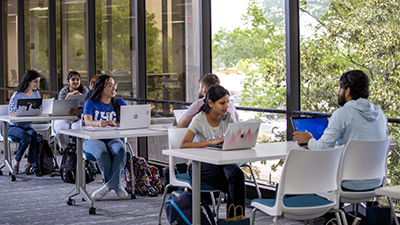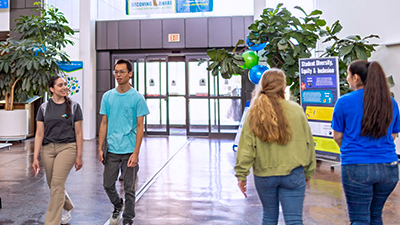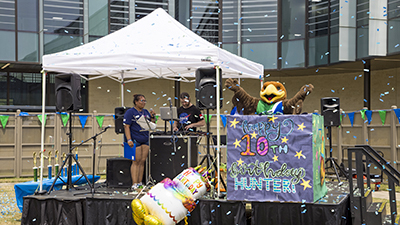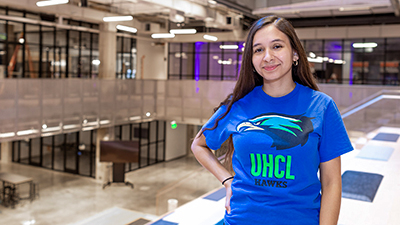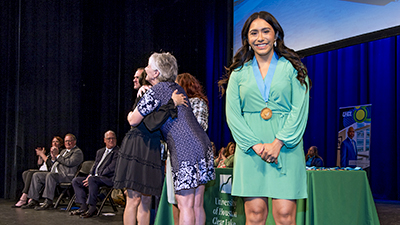For the win: Grant will transform research methods for students
After the COVID-19 pandemic forced nearly every American to work in isolation, professionals in human resources and learning and development observed the benefits of gamifying training and learning. That's why the word "gamification" is no longer just a buzzword — it's considered a key to refining the effectiveness of training people for just about anything.
University of Houston-Clear Lake is part of a $2 million National Science Foundation grant seeking to transform research methods education through gamification by incorporating new features into an innovative gaming platform called StudyCrafter.
"StudyCrafter is a game we've been working on for the past 7-8 years," said UH-Clear Lake's Associate Professor of Psychology Steven Sutherland. "Our specific role is to develop and test the portion of the game that pertains to understanding research methodology, and to create the curriculum to teach research methods using StudyCrafter."
StudyCrafter is an intelligent platform that empowers students, with the aid of artificial intelligence, to conduct research studies with human subjects. Through development and implementation of the platform in undergraduate courses, the affective, cognitive and logistical barriers inherent in conducting research and preparing the next generation of critical thinkers and researchers are addressed.
Sutherland said the pandemic highlighted the problem faced by all researchers unable to meet in a face-to-face setting to conduct research or experiments. "StudyCrafter is a tool that allows students to get hands-on experience creating research experiments to test any variables in the behavioral or social sciences that have impacts on human behavior," he said. "It's a stand-alone tool that can be used in or outside the classroom."
He explained that the tool allows students to create the experiments they need to conduct their research in a digital space, with no resources needed. "You don't have to recruit participants anymore," he said. "You post a link, share on social media, and find participants from your own pools. This allows students to quickly collect a lot of data instead of going through a process to get participants, or work to overcome other barriers that present for individuals to get data."
Current undergraduate research methods education only provides students with limited experiences due to the difficulties involved with conducting research with human subjects. StudyCrafter provides a more active learning education, in which students can easily create gamified interactive scenarios or experiments and then deploy them online to collect data from players.
"This game is for any discipline that teachers research methods outside of hard sciences," Sutherland said. "We have even used it to help students create experiences in learning more about social concerns like racism and food insecurity. We have created games for cancer patients, to help them understand what their treatment will be like."
In addition to acquiring research methods skills, Sutherland said that conducting research studies through StudyCrafter would lead to students developing and applying computational thinking and data science skills, learning how to work with and study artificial intelligence, thinking through the implications and possibilities of harnessing virtual or online environments, and becoming critically reflective of their work--all aspects that are important for the future of work.
UHCL shares the grant with Northeastern University, New York University, and University of California Santa Cruz. Sutherland is also director of UHCL's Serious Games and Simulations program, which offers students a bachelor's degree consisting of courses from across all four Colleges to become leaders with diverse experience to lead development, design and test serious games.
For more information about UHCL's Bachelor of Arts in Serious Games and Simulations, go online.

